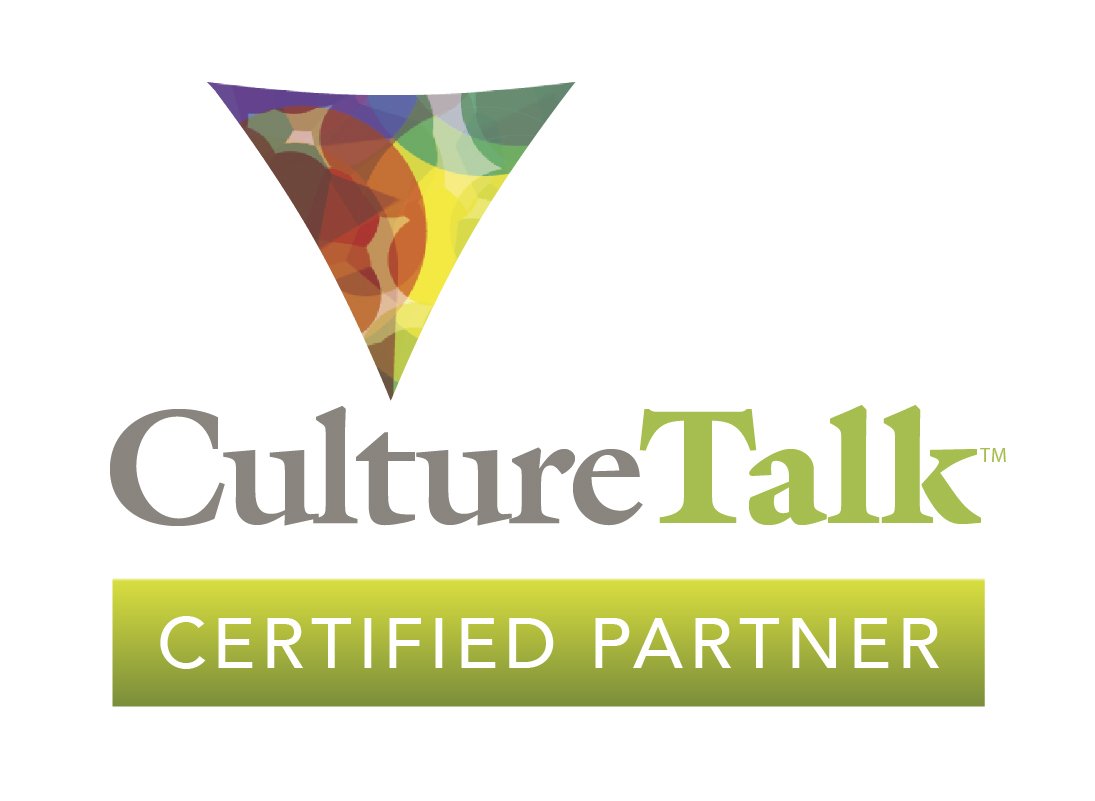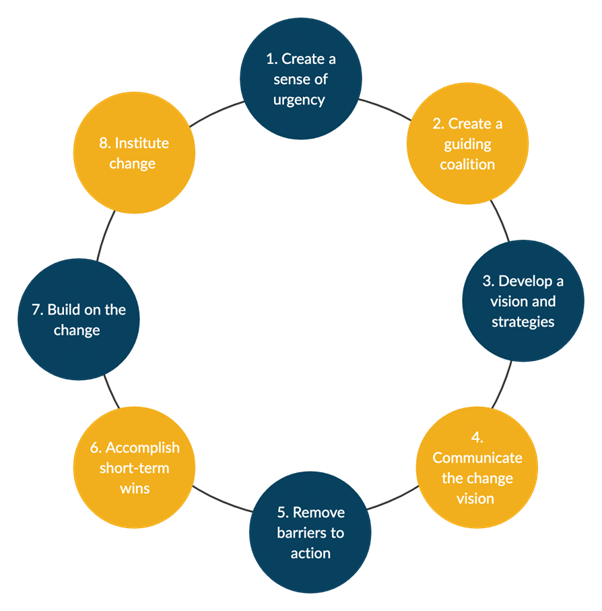
Toxic Organizational Culture is Dangerous
Promote a Positive Work Environment: Culture transformation can help create a positive work environment that prioritizes employee well-being and satisfaction. This can lead to improved morale, increased productivity, and reduced turnover rates.
Foster Collaboration and Communication: Culture transformation can foster a culture of collaboration and open communication among employees. This can help to break down silos and improve teamwork, leading to better results and improved customer experience.

Cultural Change: Kotter’s 8-Step Change Model
John Kotter's 8-step change model is a widely used framework for implementing organizational change successfully across various industries. It was introduced in his book "Leading Change," which is based on years of research that revealed only a 30% success rate in implementing organizational change. This model can be applied to a variety of changes, including the adoption of new technologies, mergers and acquisitions, the implementation of new strategies, cultural transformation, and more.

Culture Talk: Archetypes and Personal Branding
By understanding their personal archetypes, individuals can identify the types of roles, projects, and industries where they are likely to have the greatest impact and find the most fulfillment. This can be valuable in career planning and personal development, as it can help individuals align their work with their values and strengths and make informed decisions about their professional goals.
In summary, archetype analysis can be a useful tool for personal branding, as it provides individuals with a deeper understanding of their strengths, values, and personality, which they can use to develop an authentic and impactful personal brand.

Psychological Safety: The Cost of Groupthink
When team members feel comfortable speaking up and sharing their ideas, it leads to better communication, more diverse perspectives, and ultimately better decision-making. This can result in improved performance and innovation.
On the other hand, when team members shut up and do not speak up, it can lead to groupthink, missed opportunities, and errors. It can also lead to a lack of trust and a lack of confidence in the team's ability to effectively problem-solve.
Psychological safety refers to the belief that one will not be punished or humiliated for speaking up or sharing ideas in a workplace setting. It is a shared belief among team members that the team is a safe place to take interpersonal risks.

Culture Talk: The Value of Being Inclusive for Women in the Corporate World
Every CEO has noticed that culture has taken center stage. Even the most capable executives, however, find it difficult to develop an organizational culture that supports company objectives, fosters employee engagement, and draws talent.
Initiatives relating to culture and people must have a financial impact. Workplace culture becomes a concrete advantage when the fundamental forces driving it are measured and communicated.

Culture Talk: Recession-Proofing Requires Investment in Your Human Capital
People are more likely to stay at a company for a long time if it has a diverse workforce and an inclusive culture that is fair to all workers. If their requirements for meaning at work are not addressed, millennials, for instance, are 11 times more likely to leave their firm than Gen Xers.
The success and general well-being of your business, your employees, and your customers are greatly influenced by your organization's culture. Consider the reasons why the culture of your organization is the way it is and why it is crucial that it remain that way (or changes).

Culture Talk: Understanding Archetype Analysis
CultureTalk™ is dedicated to helping organizations build stronger, more effective cultures that support growth and success. The company's approach is based on the belief that cultural change is possible and that organizations can create cultures that align with their values and support their goals.
Archetypes play an important role in CultureTalk's approach to organizational culture and change because archetypes provide valuable insights into organizational culture by revealing patterns of behavior, beliefs, and values that influence the way people interact and make decisions.

Culture Talk: A Brief Introduction
People are more likely to stay at a company for a long time if it has a diverse workforce and an inclusive culture that is fair to all workers. If their requirements for meaning at work are not addressed, millennials, for instance, are 11 times more likely to leave their firm than Gen Xers.
The success and general well-being of your business, your employees, and your customers are greatly influenced by your organization's culture. Consider the reasons why the culture of your organization is the way it is and why it is crucial that it remain that way (or changes).

